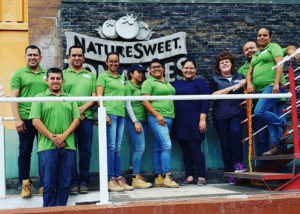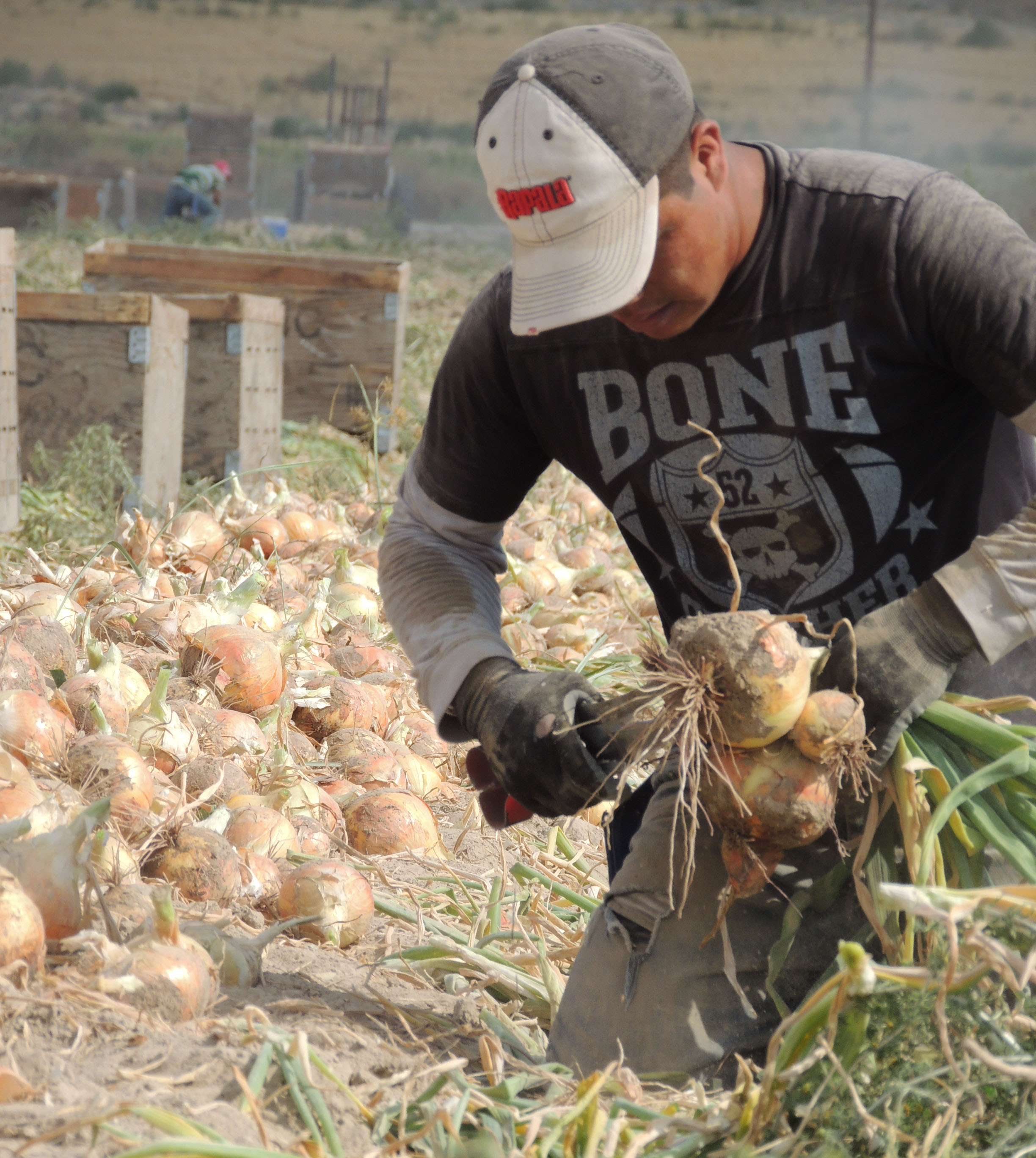“We’re coming to a point where America will have to decide if we’re going to import workers or import our food,” said Zippy Duvall, President of the American Farm Bureau Federation. This sentiment expresses the trend and struggle that growers have faced in recent years with a dwindling supply of workers resulting in lost income nationwide.
With the federal government’s change in immigration policies, this problem is likely to get worse. In fact, the U.S. agriculture industry has between 2 million and 2.6 million “unique hires.” About 75 percent of these are foreign-born—the majority from Mexico—and at least half are “document challenged” (U.S. Department of Labor).
According to Successful Farming magazine, “Given the changing nature of the workforce, it’s harder to find local people who want to do farm work. Traditional farm laborers like Hispanics are moving on to higher paid jobs in other industries. Mexican workers are finding new opportunities at home or often are restricted by immigration policies.”
In this competitive labor environment growers are exploring many strategies. Some growers have been investing in new technologies such as mechanical equipment and robotics to help reduce the number of needed workers, but these investments are costly and might not solve short-term critical needs. Many growers have also turned to the H-2A program to fill their crews with foreign workers, but they cite problems with recruitment methods, lack of flexibility to respond to production needs and a lack of clarity around seasonality.
 As Kathryn Ault, Vice President of Customer Solutions at NatureSweet Tomatoes, noted, “With the combination of immigration challenges and an increasingly competitive employment market, there is an estimated shortage of up to 100,000 farmworkers a year, a gap that is often filled via the H2-A program. Although necessary, it is a solution that is complicated and rife with challenges.”
As Kathryn Ault, Vice President of Customer Solutions at NatureSweet Tomatoes, noted, “With the combination of immigration challenges and an increasingly competitive employment market, there is an estimated shortage of up to 100,000 farmworkers a year, a gap that is often filled via the H2-A program. Although necessary, it is a solution that is complicated and rife with challenges.”
Equitable Food Initiative (EFI) has been working with NatureSweet Tomatoes and others in the fresh produce industry to offer new solutions through workforce development. The EFI Program provides long-term results in both retaining workers (seasonal and year-round) and attracting more talent. “Our approach is to be a more attractive company to recruit workers in a competitive marketplace,” stated Ault. NatureSweet Tomatoes received its first EFI certification in 2016. Since then, five facilities have been certified, impacting 7,413 workers; another five sites are implementing the EFI model and are in the process of becoming certified.
Workforce development through EFI is designed to create a more collaborative environment where workers at all levels have an increased sense of belonging and commitment to the organization. Managers and workers come together around a shared purpose of improving worker satisfaction and retention. When farmworker voices are heard and their knowledge is respected and valued, a cultural change occurs that leads to an increase in workers’ self-esteem and a decrease in turnover rates. The result is a more stable working environment.
“Labor is the biggest issue we have, and we will work hard to recruit and retain the staff we need. We implemented the EFI Program to help empower our workers and keep them with us for many years. The goal is to help them build a career, support them and help them grow in the company,” stated Shawn Hartley, Owner and Vice President of Onions 52.
As part of the certification process, EFI brings managers, farmworkers and other staff together in a Leadership Team to impact management systems. During 40 hours of facilitated learning, the Leadership Team builds effective communication skills, including listening, consensus-building, identifying common interests and addressing differences through respectful dialogue and problem-solving.
 “Training is expensive, and we want to bring the same farmworkers back every season. If we can make our workers feel valued beyond paying them a wage, we are more likely to retain that workforce and welcome them back each season. We’ve also seen through EFI that when a person feels valued in their job, they will do a better job, and they are more conscious in their work,” said Dan Borer, General Manager at Keystone Fruit Marketing.
“Training is expensive, and we want to bring the same farmworkers back every season. If we can make our workers feel valued beyond paying them a wage, we are more likely to retain that workforce and welcome them back each season. We’ve also seen through EFI that when a person feels valued in their job, they will do a better job, and they are more conscious in their work,” said Dan Borer, General Manager at Keystone Fruit Marketing.
Ensuring farmworkers are treated fairly and experience a safer and healthier work environment is an essential part of EFI certification. As a result, improvements have been seen with respect to gender equality, dignified treatment, ability to express concerns or take time off, training, prevention of injuries and health problems, equal opportunity, bonuses and wages.
“The result from the EFI certification is that our associates are better trained, they are more productive and therefore are earning a better salary. Their experience working for NatureSweet is very positive, which is why our level of turnover is remarkably low. It is easy to attract and retain our associates, which means we aren’t spending an inordinate amount of time on recruitment or training. Having a well-trained workforce makes us a stable company and produces the best-tasting tomatoes,” said Ault.
For more information about how Equitable Food Initiative workforce development and certification programs can help you attract and retain farmworkers, visit www.equitablefood.org or contact business@equitablefood.org.

